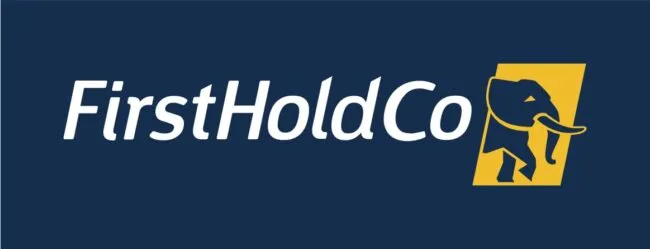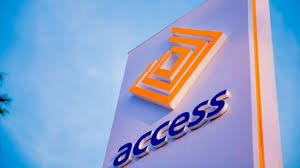Business
FirstHoldCo: Reinforcing ESG, Sustainability Initiatives As It Rebrands

In a world where approximately 20% of new businesses fail within the first two years, 45% within five years, 65% within ten years, and only 25% make it to 15 years or more (according to the US Bureau of Statistics), any business that has crossed 15 years should be sharing insights on survival and success.
But what about businesses that have lasted twice that long? Or a financial services group that has thrived for over 130 years, especially in Africa, where business survival rates are likely lower than those statistics from the Global North? Such a group has certainly earned the right to teach masterclasses on business longevity.
First HoldCo Plc (FirstHoldCo), recently rebranded from FBN Holdings Plc, exemplifies sustainable business practices. A well-diversified group, it is one of Africa’s largest financial services organisations, offering innovative financial solutions through its subsidiaries in commercial banking, asset management, capital markets, securities, trusteeship, and insurance brokerage. FirstHoldCo ensures strategic coordination and synergy among its subsidiaries to deliver long-term value for stakeholders.
Retaining the legacy strengths and experience of FBN Holdings Plc, FirstHoldCo ensures that its subsidiaries enhance positive environmental, social, and governance (ESG) impacts while minimising or eliminating negative ones. This includes managing ESG risks in the workplace, marketplace, community, and environment, with the institutional capability to turn risks into opportunities.
For example, ESG risk management enhances credit and investment decision-making, de-risking processes for subsidiaries such as FirstBank and FBNQuest. It also strengthens social relationships with the communities in which these subsidiaries operate.
ESG and sustainability may be buzzwords for some corporations seeking to appear politically correct, but at FirstHoldCo, they are integral to its identity. The company is self-driven in aligning its strategy and operations with ESG principles and setting new sustainability benchmarks for financial services in Nigeria.
FirstHoldCo’ s flagship subsidiaries, FirstBank and FBNQuest, integrate ESG risks into their products, services, and offerings from the ideation stage through to development and launch. This approach drives responsible lending and investment practices, enabling the group to leverage ESG market opportunities while promoting sustainable socio-economic growth.
FirstHoldCo also prioritises people empowerment, fostering a work environment rooted in equal opportunities, diversity, and inclusion. A notable achievement is bridging the diversity gap, reaching a 40% female to 60% male employee ratio in 2023, one year ahead of its 2024 target.
The group also supports the communities where its subsidiaries operate, ensuring its impact resonates positively. Since 2017, it has implemented the SPARK (Start Performing Acts of Random Kindness) initiative and Corporate Responsibility and Sustainability (CR&S) Week. In 2023, these initiatives impacted 60,000 lives through outreaches to 60 orphanages, 20 schools, and hospitals across Nigeria, Ghana, Senegal, The Gambia, the Democratic Republic of Congo, Sierra Leone, and the United Kingdom. Donations included consumables, computers, clean water projects, school renovations, wheelchairs, and cash. Employees committed over 27,000 volunteer hours to these initiatives.
In 2023, FirstBank reinforced its commitment to empowering women through FirstGem, a financial product supporting women-led businesses. Over N36 billion in loans were disbursed at a single-digit interest rate of 9%. Additionally, its Agency Banking business, FirstMonie, expanded its female agent network to over 55,000.
Inclusion remains a key focus, with FirstBank enhancing accessibility for physically challenged customers in 234 locations, making 25 branches fully accessible and improving access at 209 others. It also expanded the SPARK initiative to institutions like the Bethesda School of the Blind and the Down Syndrome Foundation in Lagos.
FirstBank operates an Environmental, Social, and Governance Management System (ESGMS) to drive responsible lending and minimize ESG risks. In 2023, this system was enhanced to ensure real-time transparency in corporate credit screenings. That year, 2,239 credit transactions worth N4.236 trillion were assessed for ESG risks.
To strengthen ESG compliance, FirstBank collaborates with development partners such as British International Investment, the African Development Bank, the International Finance Corporation (IFC), and Proparco, a French development finance institution. Its partnership with Proparco is crucial for integrating climate initiatives into business strategy. This project enhances its understanding of financed emissions and positions it for climate financing and investment opportunities.
This initiative will help FirstBank reduce greenhouse gas (GHG) emissions, mitigate exposure to physical and transition risks, and strengthen climate adaptation efforts. It also reinforces its market competitiveness as an ESG leader committed to a low-carbon economy.
As part of its commitment to decarbonisation, FirstHoldCo’ s FirstBank actively engages in reforestation and afforestation through partnerships focused on carbon dioxide (CO2) removal. In 2023, it pledged to plant 50,000 trees by 2025 in collaboration with the Nigerian Conservation Foundation (NCF). That year, it planted 1,000 trees at the Lekki Conservation Centre, Lagos; Model Secondary School, Maitama, Abuja; and Federal Government Girls College, Calabar. By the following year, it had planted an additional 30,000 trees, bringing the total to 31,000.
FirstBank also drives thought leadership in climate finance, promoting knowledge on carbon mitigation and climate adaptation. A notable effort was a webinar themed ‘Harnessing Climate Finance Opportunities in Nigeria,’ held in partnership with the Sustainability Practitioners Institute of Nigeria (SPIN). The event featured prominent ESG and sustainability experts such as Professor Kenneth Amaeshi, Dr. Muntaqa Umaru-Sadiq, and Carina Dunker, underscoring FirstBank’s commitment to advancing climate finance discussions.
With so much achieved and ongoing ESG/sustainability initiatives, what is the greatest impact of ESG at FirstHoldCo?
For the group, it is the net positive effect on the communities where its subsidiaries operate. For individuals, it is the tangible benefits from its financial solutions and CSR initiatives. For businesses, it is the sustainable practices FirstHoldCo champions, setting a standard for responsible corporate leadership.
This article is contributed By A. Ezekiel
Business
Access Bank Launches “DettyFusion” Platform for Seamless Detty December Experience

Access Bank Plc, Nigeria’s largest retail bank, is set to unveil DettyFusion, an innovative all-in-one digital platform designed to help Nigerians at home and in the diaspora seamlessly discover, plan, and enjoy entertainment events during the upcoming Christmas and New Year festive season.
Billed as the first-of-its-kind entertainment aggregator in the country, DettyFusion will serve as a centralized hub where users can explore event calendars, purchase tickets, access exclusive discounts, participate in curated festive experiences, and make safe, seamless payments throughout the holiday period.
Speaking on the forthcoming launch, Access Bank’s Head of Mobility, Ishmael Nwokocha, said the platform was inspired by the bank’s commitment to enhancing customer experience during the highly anticipated Detty December season.
“Every December, Nigerians look forward to moments that bring joy, connection, and unforgettable experiences. The launch of DettyFusion will create a single gateway that makes it easier, safer, and more convenient for customers to enjoy the thrills of Detty December,” Nwokocha stated.
He added that the platform reflects Access Bank’s drive to deliver innovative lifestyle solutions that extend beyond traditional banking services. “DettyFusion brings together key features that meet the needs of today’s digitally active and experience-driven audience,” he said.
With this initiative, Access Bank continues to reinforce its position as a leading lifestyle enabler, supporting Nigeria’s creative sector while empowering customers to enjoy top-tier entertainment during the festive season.
With DettyFusion, Detty December just got smarter, more convenient, and even more rewarding.
Business
How Access Bank is Supporting Women Driving Africa’s Growth Story

Across Africa, women are fast becoming the heartbeat of economic transformation. From bustling open-air markets to high-tech boardrooms, women-led enterprises are redefining what is possible for the continent’s future.
Whether as market traders expanding their reach through digital platforms, tech founders scaling innovations across borders, or artisans turning local crafts into global brands, women’s contributions are now central to Africa’s economic resurgence.
Even as they break new ground, many still face formidable barriers. Access to finance, mentorship, business education, and supportive networks remains limited. Structural issues such as weak property rights, gender bias, and inadequate legal protections often hinder women from securing loans or expanding their businesses.
Consequently, many women-owned ventures remain small, informal, and vulnerable to economic shocks.
Recognising both the promise and the obstacles, Access Bank has positioned itself at the forefront of empowering women across the continent. Recently named Africa’s Best Financier for Female Entrepreneurs by the EMEA Finance Awards, the Bank has earned global recognition for its commitment to inclusion, innovation, and sustainable impact.
At the centre of this effort is the W Initiative, one of Africa’s most comprehensive women-focused banking programmes. Unlike conventional banking, it combines finance with mentorship, training, and community support, acknowledging that true empowerment requires more than access to capital. The initiative meets women wherever they are on their entrepreneurial journey, from start-ups to growing enterprises and corporate leadership.
The W Power Loan offers affordable credit with flexible terms, enabling women to invest in expansion, inventory, or technology. The W Academy provides leadership and business training on financial literacy, marketing, and regulatory compliance, while the W Community connects women to peers, mentors, and role models across industries.
Importantly, these offerings extend beyond urban centres. From microloans sustaining traders in rural markets to leadership programmes developing female executives in multinational firms, Access Bank’s approach is deliberately inclusive. By partnering NGOs, business associations, and government agencies, it reaches women in underserved communities, ensuring participation in Africa’s economic rise.
The results are evident. Thousands of women have accessed credit, training, and networks through the Bank’s initiatives, enabling them to launch and scale businesses, create jobs, and uplift their communities. The ripple effects are far-reaching: increased household income, improved family wellbeing, and greater economic resilience. Women who once faced daunting barriers now serve as role models and change-makers, inspiring others to follow their path.
Studies show that when women thrive, societies prosper. The World Bank and African Development Bank note that empowering women fuels GDP growth, improves health outcomes, and enhances social stability. By directly addressing structural gaps in access to finance and information, Access Bank helps to unlock this transformative potential.
Apart from supporting entrepreneurs, Access Bank promotes gender inclusion within its own organisation. Its leadership pipeline identifies and advances talented women, while mentorship and wellness programmes help female professionals thrive. The Bank also uses public platforms, from conferences to policy dialogues, to share success stories and advocate for gender diversity across sectors.
The EMEA Finance recognition thus goes beyond trophies and titles; it affirms that profitability and purpose can coexist. For Access Bank, supporting women’s advancement is smart economics. By embedding inclusion into its DNA, the Bank is shaping a financial ecosystem that views women as equal partners in progress.
Access Bank’s influence also extends into advocacy. Through forums, roundtables, and research collaborations, the Bank engages policymakers, civil society, and business leaders to identify and dismantle barriers facing women entrepreneurs. Its campaigns amplify women’s voices, spotlighting their achievements and driving conversations around inclusive growth.
Business
Fidelity Bank Spreads Kindness to Makoko Community, Donates Boats, Food Items, Others

In another demonstration of its commitment to corporate social responsibility, leading financial institution, Fidelity Bank Plc, has extended support to residents of the Makoko waterfront community in Lagos with the donation of boats, educational materials, food items and other essential relief items.
The donation was championed by the Achievers Inductees Class of 2025 under the Fidelity Helping Hands Programme (FHHP), the bank’s staff-led CSR initiative where members of staff identify areas of critical interventions in their communities, raise funds and receive matching support from the bank’s management to execute the projects.
Speaking on the donation, Divisional Head, Brand and Communications, Fidelity Bank Plc, Dr. Meksley Nwagboh, reaffirmed the bank’s dedication to supporting communities and fostering sustainable development.
“At Fidelity Bank, we believe that when communities thrive, businesses prosper. Our commitment goes beyond banking, it is about improving lives, supporting education, and creating opportunities for growth. This donation reflects our dedication to nurturing the next generation and contributing to a better, more sustainable future,” He stated.
Expressing appreciation on behalf of the community, the traditional leader of Makoko, Baale Shemede Emmanuel Ajakaekun, commended Fidelity Bank for its compassionate donation.
“We are grateful that Fidelity Bank came down here to support us. May their work continue to flourish, and may God lift them higher. We hope they will not forget us but come back again to support our people,” he said.
Similarly, the Proprietor, Part of Solution Orphanage, Nursery and Primary School, Shemede Taiwo, described the donation as life-changing for the children and residents.
“Many children here struggle to attend school because boats are expensive to build or hire. Fidelity Bank’s donation will make a huge difference in ensuring our children get to school safely and in ensuring the improved welfare of the residents of this community. We truly appreciate this gesture,” Shemede Taiwo said.
Through the Fidelity Helping Hands Programme (FHHP), the bank continues to empower communities across Nigeria by addressing key social issues in education, health, and welfare. The Makoko outreach comes off the back of a similar FHHP outreach to Old People’s Home in Yaba, Lagos, reaffirming Fidelity Bank’s commitment to the sustainable development that begins with genuine care for people and their environment.
Ranked among the best banks in Nigeria, Fidelity Bank Plc is a full-fledged Commercial Deposit Money Bank serving over 9.1 million customers through digital banking channels, its 255 business offices in Nigeria and United Kingdom subsidiary, FidBank UK Limited.
The Bank is a recipient of multiple local and international Awards, including the 2024 Excellence in Digital Transformation & MSME Banking Award by BusinessDay Banks and Financial Institutions (BAFI) Awards; the 2024 Most Innovative Mobile Banking Application award for its Fidelity Mobile App by Global Business Outlook, and the 2024 Most Innovative Investment Banking Service Provider award by Global Brands Magazine. Additionally, the Bank was recognized as the Best Bank for SMEs in Nigeria by the Euromoney Awards for Excellence and as the Export Financing Bank of the Year by the BusinessDay Banks and Financial Institutions (BAFI) Awards.






